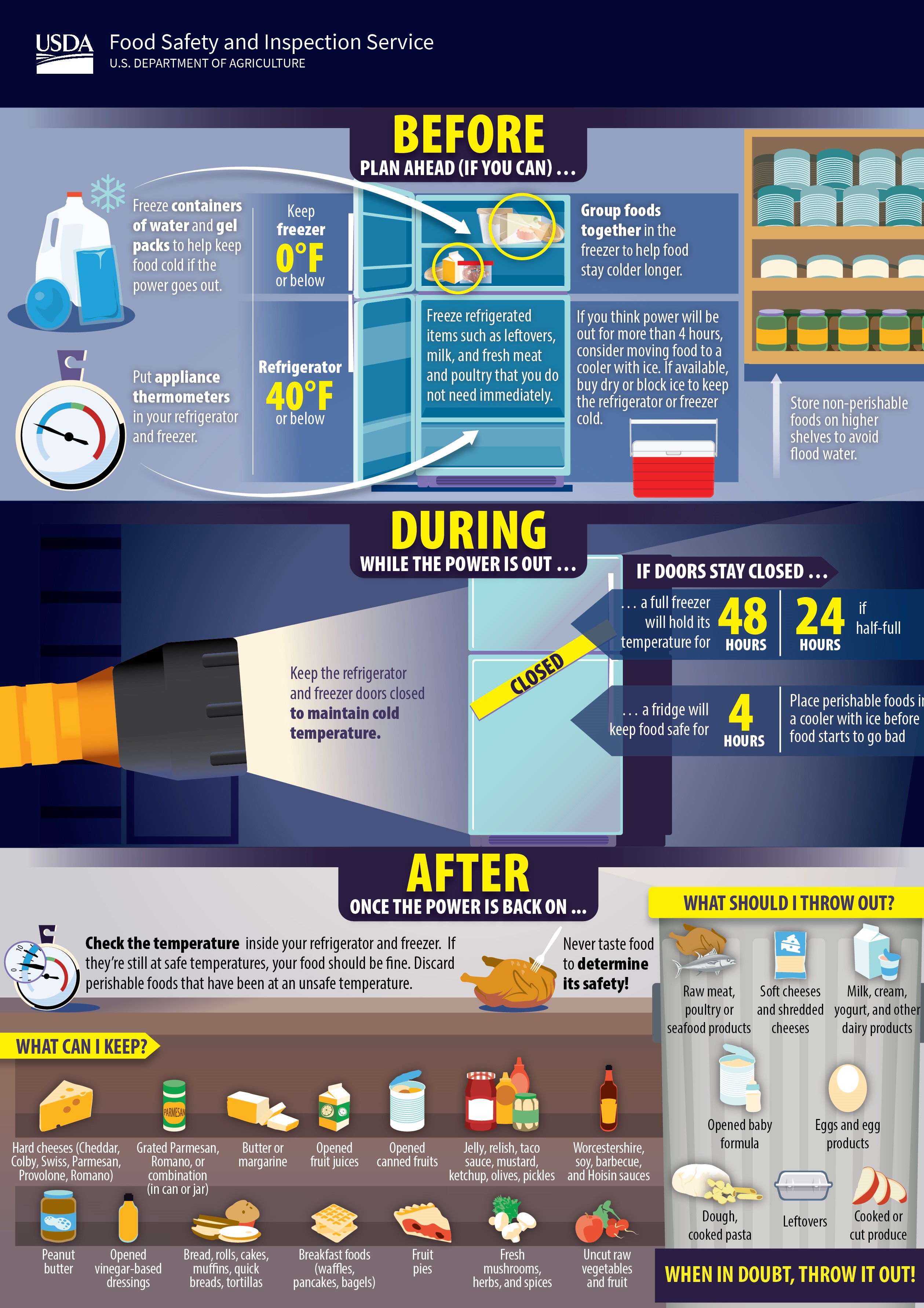At Oneida-Madison Electric Co-op, we want to keep your power up and running all the time, but sometimes Mother Nature has another agenda and the power can go out due to lightning, high winds, heavy snow, and the like. And while it may be only a matter of a couple hours before your electricity is restored, cold food can go bad quickly without a little prior preparation and knowledge.
First and foremost, keep your refrigerator and freezer doors shut as much as possible to keep the cold air in; a refrigerator that's been unopened can maintain safe food temperatures for about 4 hours and a full freezer will do so for about 48 hours (24 hours if half full). Meat, poultry, fish and eggs need to be refrigerated at or below 40° F, while frozen food needs be at or below 0° F. A good way to determine the temperature of an appliance is to have an instant-read, digital, or dial food thermometer handy.
If the power is out for a prolonged period, there are some other ways to keep food safe. Keeping a full freezer is the easiest way, but if that is not the case in your household, bunch frozen items close together to maintain the colder temperatures for as long as possible. During cold weather, fill up old milk containers, jugs or buckets with water and place outside to freeze. Once frozen, put your homemade ice inside your appliances or coolers to keep food fresh for as long as possible.
Once your power is back on, double check all food items to determine if its ok to keep. Frozen foods should be at or below 40° F or have ice crystals visible in order to safely refreeze. Perishable food items (meat, fish, poultry, leftovers, etc.) should be thrown away if they are above 40° F for more than two hours.


